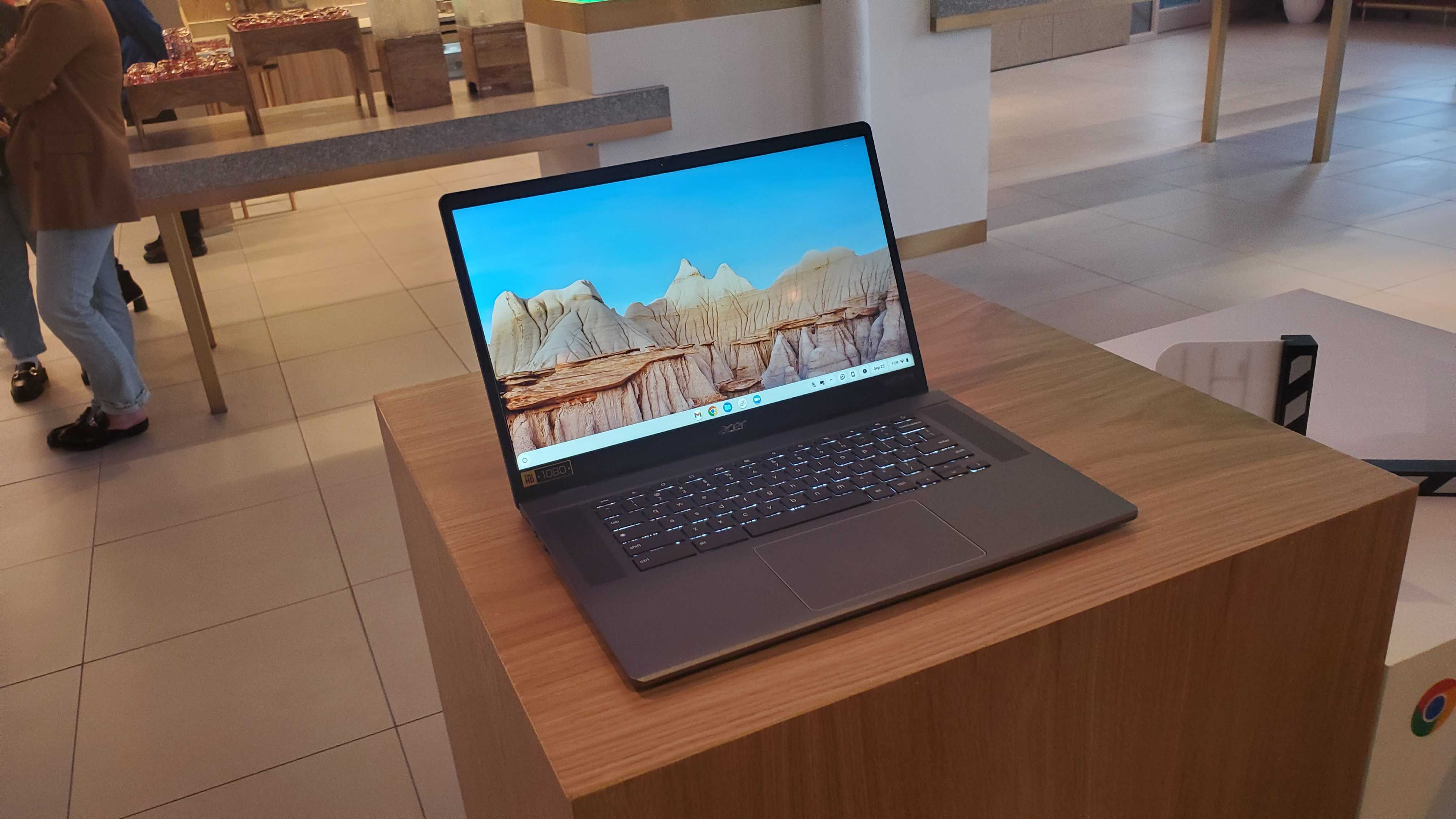
Announced during Google I/O conference in May 2011, Chromebooks saw the Alphabet company enter the laptop space through the release of devices from Acer and Samsung a month later.
A few years later, Lenovo, HP and Google itself began to drop their own versions of the lightweightr laptop, and given their affordability and ease of use, it’s easy to understand why Chromebooks have reached 56.1 million shipped units between 2021 and 2022.
All the best Chromebooks are affordable due to their lightweight Chrome OS, which relies heavily on online and cloud-based functions, meaning you don't need especially high-end hardware in order for them to run.
Unlike Windows or Mac laptops, Chromebooks can use less powerful and cost-effective components, making them a budget-friendly choice for users seeking basic computing needs. These attributes have made them perfect for educational and business purposes over the years since release. So much that Apple is reportedly looking to make a similar product. This is one of the many reasons why 2024 looks set to be Chromebooks' best year yet and here’s why.

The Year of Chromebook Plus
Chromebooks are known for being low-powered machines that utilize the web for various apps and tools. Of course, this has made the operating system underpowered for more intensive creative and gaming tasks. This is where Chromebook Plus hopes to change modern expectations of where Google’s laptop operating system can go.
Google revealed its new Chromebook Plus series this year featuring upgraded specifications including Intel Core or AMD Ryzen CPUs, 1080p display, 8GB RAM, and 128GB storage.
The lineup also includes various Google software features like Google Photos Magic Eraser, offline file sync, AI-powered video conferencing enhancements, and more. Chromebook users will receive free perks like a three-month Photoshop on the Web subscription, and existing Chromebook owners meeting the hardware requirements will get a free update to the Chromebook Plus software.

Steam catalog eventually making Chromebooks fun outside of work
Between Chromebook Plus upping the performance specs enough to at least play Minecraft, Steam officially began supporting Google’s laptop operating system this year. While not pre-installed by default, the Steam installer now resides in the app drawer, making it accessible for gamers to install.
This development follows Google's 2020 announcement of plans to implement Valve's platform for ChromeOS, with testing beginning in March 2023. So far, popular games from the Left 4 Dead 2 to Stardew Valley and Cuphead have been found running on certain Chromebooks.
However, Steam support will only be available on certain gaming-capable Chromebook models. Be mindful that older budget Chromebook models won’t be able to do any form of gaming but more modern and future laptops will definitely be able to have a bit of fun going forward.
ChromeOS Flex & extreme prolonged usability
Google’s renewed focus on device longevity and repairability this year comes after the company faced criticism for abandoning older Chromebook models, and in response, Google came up with a clever way to restore older Windows laptops and Macbooks: ChromeOS Flex. The new OS is a cloud-based, lightweight OS that can transform old PCs and Macs into Chromebook-like devices, initially aimed at businesses and students. Google has indicated that it hopes to extend support to older Chromebooks as well.
Installing it requires a USB drive with sufficient space for a bootable version, and while Chromebooks can't run Flex currently, this may change in the future. It's unclear when this update will launch, as the project is in its early stages. If the Flexor project succeeds, however, it could offer a solution for older Chromebooks, though the exact support duration remains uncertain. RIght now, it’s the best way to provide a longer shelf life for various laptops outside of Google’s Chromebooks.

Ultra Wideband
Google also looks to enhance Chromebook usability by integrating Ultra Wide Band capabilities.
UWB enables energy-efficient, high-bandwidth, short-range communication between devices, with data transfer speeds of up to 1Gbps. While currently used for device positioning and movements in some Android and Apple products, its potential extends beyond those limited use cases. UWB could potentially replace Bluetooth, NFC, and even Wi-Fi due to its high-frequency bands.
In Chromebooks, this integration could introduce an 'Airdrop' feature similar to Apple devices, along with improved Chromebook-to-Chromebook and Chromebook-to-Phone connections. This feature would simplify file sharing and device connectivity, allowing users to seamlessly transfer work between Chromebooks and Google phones or tablets.
Although the technology is in its early stages, Google is exploring various applications, hinting at exciting possibilities in the future. This development could position Chromebooks to outperform their rivals in terms of usability.







